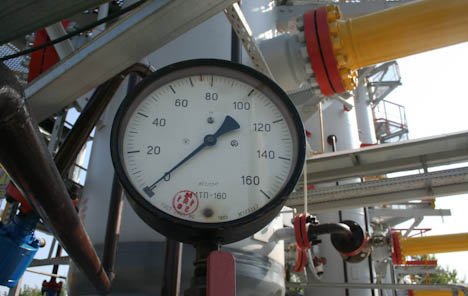Baku, Azerbaijan, April 16
By Aygun Badalova -Trend:
Russia has recently taken one more step towards increasing its influence in Kyrgyzstan. Last week Russia's Gazprom, which holds the monopoly in the oil and gas field, proceeded with the purchase of KyrgyzGas.
An agreement to buy 100 percent of KyrgyzGaz's shares which was called "historic," was signed in Bishkek by Gazprom Management Committee Chairman Alexey Miller and the Kyrgyzgaz Director General Turgunbek Kulmurzaev in the presence of Kyrgyz President Almazbek Atambayev.
The consequences of this purchase for the country may be considered from several aspects. On the one hand, this deal will help Kyrgyzstan to solve one of the country's main problems - ensuring energy security for the population and for the country as a whole.
Gazprom's purchase of KyrgyzGaz should have a positive effect for the population in the country, at least those hooked into the gas pipeline network, U.S. expert on Central Asia Bruce Pannier believes.
"Gas supplies have always been uncertain in Kyrgyzstan since independence, there are unexpected cut-offs and severe reductions that sometimes last for days or weeks. The south is the region worst hit since it is almost totally dependent on gas supplies from neighboring Uzbekistan, and relations between Tashkent and Bishkek have seldom been good," Pannier told Trend.
Uzbekistan usually cuts off gas to Kyrgyzstan because Kyrgyzstan has rarely been able to pay off its gas bills on time, expert mentioned.
On April 14, Uzbekistan cut off the gas supply to the south of Kyrgyzstan because of termination of the contract between Uztransgaz and KyrgyzGas.
KyrgyzGas has already begun negotiations with Uztransgaz on renewal of gas supply to the south of the republic.
Pannier believes, that now that Gazprom owns KyrgyzGaz the bills to Uzbekistan are sure to be paid, because Gazprom will be buying its own gas, produced in Uzbekistan, to fill the pipelines in Kyrgyzstan.
On the other hand, according to Pannier, Uzbekneftegaz or its subsidiary in charge of gas transportation, Uztransgaz, will find it much more difficult to deal with Gazprom than with Kyrgyz officials.
"Difficult mostly because Gazprom is developing gas fields in Uzbekistan and also because more than half of Uzbekistan's gas exports go to Russia," Pannier said.
When Russia's State Duma ratified the deal for Gazprom to take over Kyrgyzgaz on January 17, Deputy Energy Minister Anatoly Yanovsky said, "It's planned that gas will come from the territory of Uzbekistan (to Kyrgyzstan), but from those areas, which are currently being developed on the territory of this country (Uzbekistan) by Gazprom."
At the same time, Pannier believes that Gazprom's purchase of Kyrgyzgaz is more a foreign policy move than a business move.
"Gazprom is never going to increase its company profits by running the gas network in Kyrgyzstan. Gazprom ownership of KyrgyzGaz already gives the Russian government more leverage over Kyrgyzstan, remembering the Russian government owns 50.01 percent of Gazprom," he said.
Russia is also planning to build the Naryn Cascade and Kambar-Ata hydropower projects. And this is again, according to Pannier, a political move as Russia's Inter RAO UES will have difficulties getting back all the two billion dollars it must invest in the project
"Of course, Russia is currently rearming Kyrgyzstan's military. Russia is expected to hand over some one billion dollars in military equipment to Kyrgyzstan," Pannier added. "And there is also the Kant air base the Russian military has been using in Kyrgyzstan for more than a decade. It is a key link in the CIS Collective Security Treaty Organization's security chain in Central Asia."
Regarding the possibility of the deal between Gazprom and KyrgyzGas to affect the relations between Kyrgyzstan and the U.S., Pannier stressed the U.S. will have a diminished presence in Kyrgyzstan anyway after the last American troops leave the Manas transit center this July.
"The U.S. will continue to have good relations with Kyrgyzstan but as America's interests in Afghanistan decline so too will U.S. interests in Central Asia, for the next few years at least," he said.
In terms of proximity and history, Pannier believes Russia is better positioned to exert influence in Kyrgyzstan. "I think the U.S. and the West in general will be glad to allow Russia to watch over security in Central Asia after more than 12 years of fighting in Afghanistan," he said.
At the same time, Pannier believes, the sanctions that Western nations are imposing on Russia could also play a role in the US-Kyrgyzstan relations.
"If Russia is forced to speed up plans to switch its gas and oil export market from Europe to Asia there could be a gap of a few years when the Russian government will be financially limited and that will affect Russia's foreign policy also, even within the CIS," Pannier said.
"And Kyrgyzstan might yet find a need for some U.S. support."






